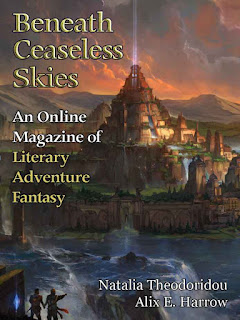This is just a very lively, enjoyable, warm listen.
It is, as the title suggests, a collection of coming out stories, released in celebration of Pride Month. Included are stories of first love, telling parents, coming out in one's work life, surviving Navy service during "Don't Ask, Don't Tell," coming out in response to a question from Barack Obama in a BBQ joint. The stories are all very personal and compelling, and the tellers of them are peronalities who just reach out and make you care.
And in the irony of our time, some of these stories were literally recorded in the closet, as the COVID-19 pandemic kept people in their homes, surrounded by family or housemates. Some of them litereally had no place quiet enough to record except in a well-chosen closet!
It's a lot of fun. Highly recommended.
I received this audiobook free as part of the Audible Originals program, and am reviewing it voluntarily.



























